Hongshu Liao
Semi-Supervised Learning via Swapped Prediction for Communication Signal Recognition
Nov 14, 2023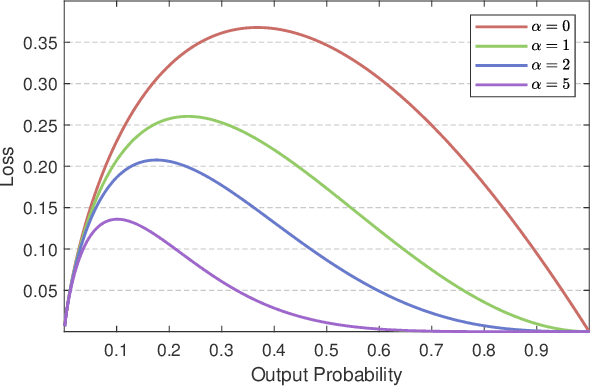
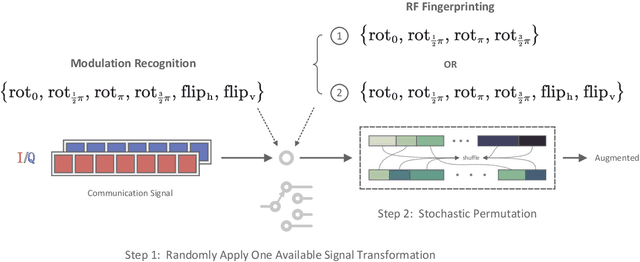
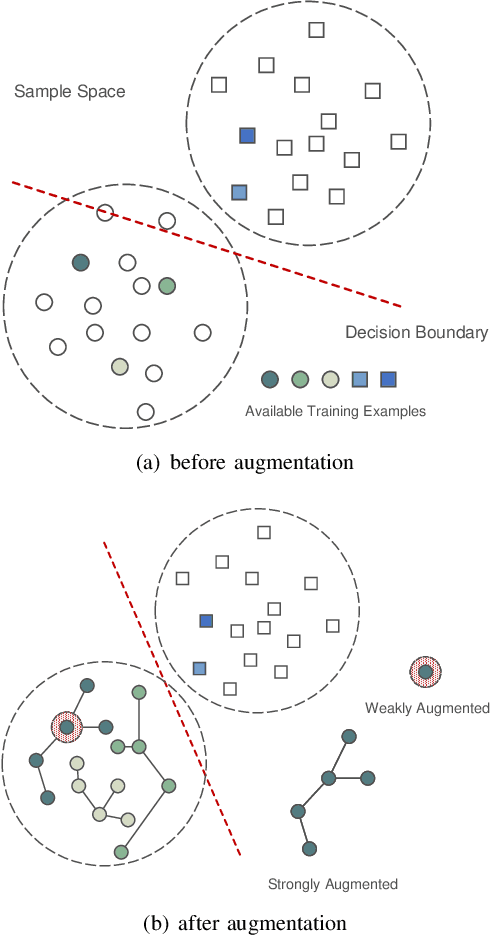
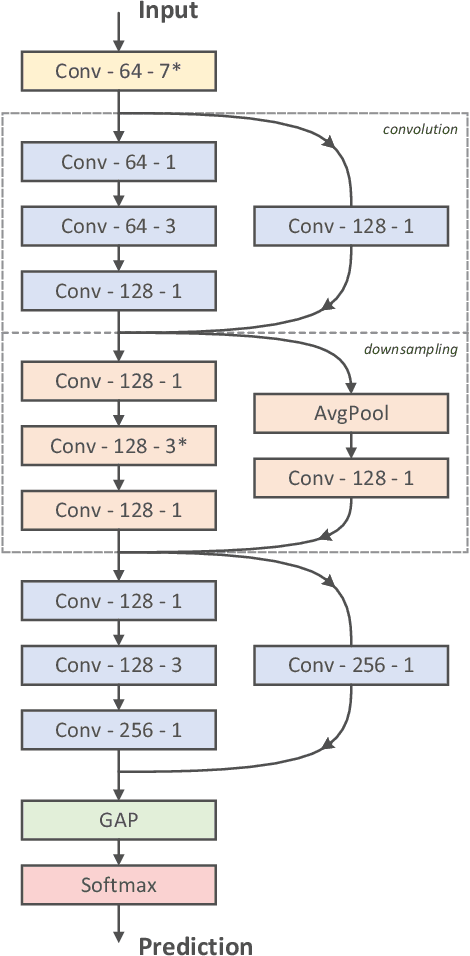
Abstract:Deep neural networks have been widely used in communication signal recognition and achieved remarkable performance, but this superiority typically depends on using massive examples for supervised learning, whereas training a deep neural network on small datasets with few labels generally falls into overfitting, resulting in degenerated performance. To this end, we develop a semi-supervised learning (SSL) method that effectively utilizes a large collection of more readily available unlabeled signal data to improve generalization. The proposed method relies largely on a novel implementation of consistency-based regularization, termed Swapped Prediction, which leverages strong data augmentation to perturb an unlabeled sample and then encourage its corresponding model prediction to be close to its original, optimized with a scaled cross-entropy loss with swapped symmetry. Extensive experiments indicate that our proposed method can achieve a promising result for deep SSL of communication signal recognition.
Radio Generation Using Generative Adversarial Networks with An Unrolled Design
Jun 24, 2023Abstract:As a revolutionary generative paradigm of deep learning, generative adversarial networks (GANs) have been widely applied in various fields to synthesize realistic data. However, it is challenging for conventional GANs to synthesize raw signal data, especially in some complex cases. In this paper, we develop a novel GAN framework for radio generation called "Radio GAN". Compared to conventional methods, it benefits from three key improvements. The first is learning based on sampling points, which aims to model an underlying sampling distribution of radio signals. The second is an unrolled generator design, combined with an estimated pure signal distribution as a prior, which can greatly reduce learning difficulty and effectively improve learning precision. Finally, we present an energy-constrained optimization algorithm to achieve better training stability and convergence. Experimental results with extensive simulations demonstrate that our proposed GAN framework can effectively learn transmitter characteristics and various channel effects, thus accurately modeling for an underlying sampling distribution to synthesize radio signals of high quality.
Open-Set RF Fingerprinting via Improved Prototype Learning
Jun 24, 2023Abstract:Deep learning has been widely used in radio frequency (RF) fingerprinting. Despite its excellent performance, most existing methods only consider a closed-set assumption, which cannot effectively tackle signals emitted from those unknown devices that have never been seen during training. In this letter, we exploit prototype learning for open-set RF fingerprinting and propose two improvements, including consistency-based regularization and online label smoothing, which aim to learn a more robust feature space. Experimental results on a real-world RF dataset demonstrate that our proposed measures can significantly improve prototype learning to achieve promising open-set recognition performance for RF fingerprinting.
Semi-Supervised RF Fingerprinting with Consistency-Based Regularization
Apr 28, 2023



Abstract:As a promising non-password authentication technology, radio frequency (RF) fingerprinting can greatly improve wireless security. Recent work has shown that RF fingerprinting based on deep learning can significantly outperform conventional approaches. The superiority, however, is mainly attributed to supervised learning using a large amount of labeled data, and it significantly degrades if only limited labeled data is available, making many existing algorithms lack practicability. Considering that it is often easier to obtain enough unlabeled data in practice with minimal resources, we leverage deep semi-supervised learning for RF fingerprinting, which largely relies on a composite data augmentation scheme designed for radio signals, combined with two popular techniques: consistency-based regularization and pseudo-labeling. Experimental results on both simulated and real-world datasets demonstrate that our proposed method for semi-supervised RF fingerprinting is far superior to other competing ones, and it can achieve remarkable performance almost close to that of fully supervised learning with a very limited number of examples.
Environment-Aware Codebook for Reconfigurable Intelligent Surface-Aided MISO Communications
Apr 24, 2023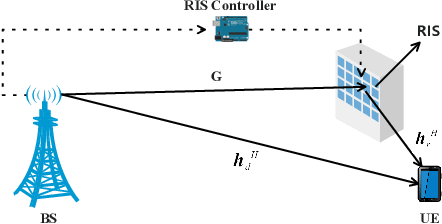
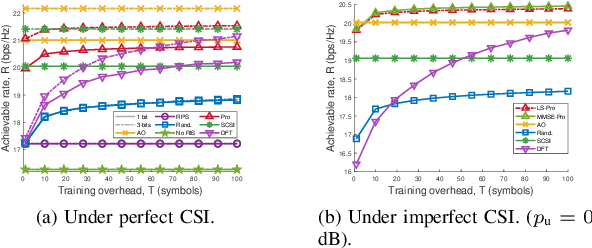
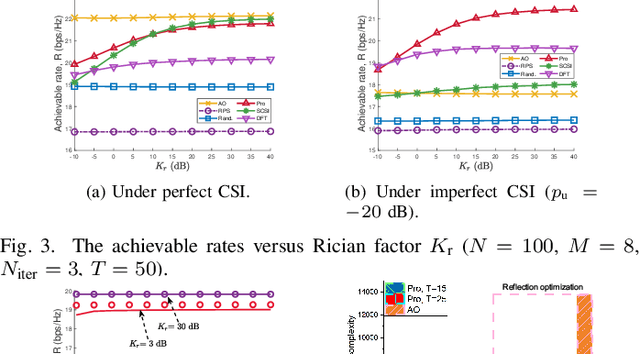
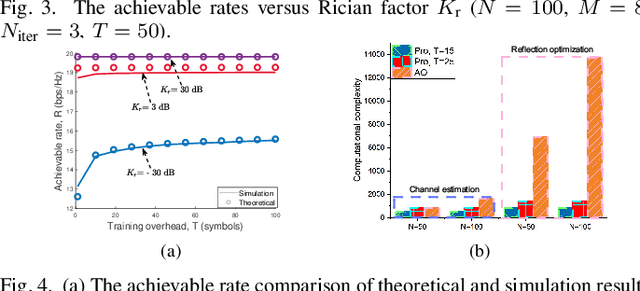
Abstract:Reconfigurable intelligent surface (RIS) is a revolutionary technology that can customize the wireless channel and improve the energy efficiency of next-generation cellular networks. This letter proposes an environment-aware codebook design by employing the statistical channel state information (CSI) for RIS-assisted multiple-input single-output (MISO) systems. Specifically, first of all, we generate multiple virtual channels offline by utilizing the location information and design an environment-aware reflection coefficient codebook. Thus, we only need to estimate the composite channel and optimize the active transmit beamforming for each reflection coefficient in the pre-designed codebook, while simplifying the reflection optimization substantially. Moreover, we analyze the theoretical performance of the proposed scheme. Finally, numerical results verify the performance benefits of the proposed scheme over the cascaded channel estimation and passive beamforming as well as the existing codebook scheme in the face of channel estimation errors, albeit its significantly reduced overhead and complexity.
 Add to Chrome
Add to Chrome Add to Firefox
Add to Firefox Add to Edge
Add to Edge